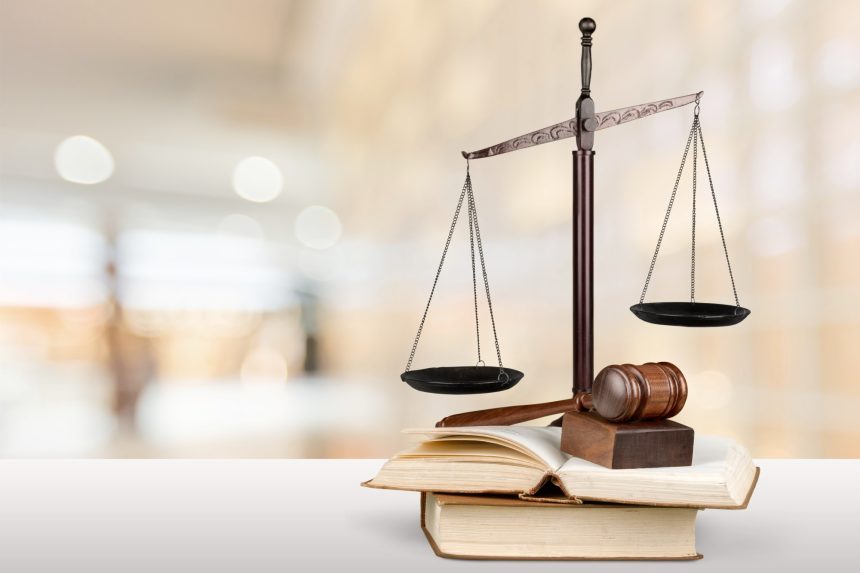If you must pursue a lawsuit or face a difficult personal injury case, you might hear various legal terms that your lawyer or the opposing counsel throws around. Maybe you know about some of them from watching CSI or Law and Order: SVU. You may not completely understand them, though.
You should know what these legal terms mean. If you don’t, you might feel lost as your lawyer defends you. You should understand what legal strategy they are using, and their terminology choices make a difference in winning or losing your case.
With that in mind, let us talk about causation, a term you might hear in many personal injury cases. If you know what it means, you’ll understand what a lawyer’s saying when they mention it in a courtroom setting.
What Does Causation Mean?
Understanding causation is crucial in personal injury cases. The term refers to cause and effect. More specifically, if a lawyer mentions causation, they mean how one person’s action or inaction causes something else that happens.
In other words, causation means a process or act that produces an effect. Why does this term matter? In cases where you feel some other person or entity harmed you, your lawsuit might hinge on this term.
If you or your lawyer can prove that someone’s action or inaction caused injury or illness, you might win your case. It’s determining causation that influences a jury’s decision. If you can’t prove causation, you’ll likely lose your case and walk away with nothing.
What Proves Causation?
If you feel someone hurt you or made you sick, and you pursue the matter in court, you should have some evidence that helps prove your case. Your testimony alone might not do it. It can help if you’re very convincing, but just your words might not sway a jury, especially if the other person or entity has a sharp retort that’s equally effective.
Physical evidence indicates causation, and you should have as much as possible if any exists. You can collect that physical evidence during the court-assisted discovery process. The discovery process follows certain rules and best practices that the court system set in place years before. Judges and lawyers call this precedent.
What Are Some Physical Evidence Examples?
If you need physical evidence proving your case, you might use police reports. You may use sworn statements from eyewitnesses or expert witnesses.
You might also use video evidence if a particular incident harmed you, and you caught it on video. Maybe you have traffic camera footage or footage from someone’s cell phone. Perhaps store camera footage captured the incident.
The more physical evidence you have, the more likely you can prove causation. If you have abundant physical evidence, you might convince the defendant to offer you a settlement without the case going all the way to a jury’s decision.
In that instance, you must decide whether taking the defendant’s offer makes sense. You can talk to your lawyer, and they will advise you. If they say the defendant is making a lowball offer, and you can likely get more if the case goes to a jury’s decision, you might reject the first or second offer and proceed to the trial’s later stages.
The Two Causation Types
You should know that with causation in the court system, you’ll have two distinct kinds. You will have actual cause and also proximate cause.
Actual cause means the conduct or action by a person or entity directly causing another action. Maybe a car hits a pedestrian in a crosswalk. The car’s driver caused the pedestrian’s injuries.
Proximate cause is slightly different, and this concept gets a little fuzzy sometimes. Proximate cause deals with a defendant’s foreseeability.
In other words, when someone in a courtroom mentions proximate cause, they describe to a jury the actions that a defendant committed that this defendant could reasonably see in advance. The jury should hold that defendant liable because this individual should know before they acted that they could harm someone or make them ill. However, if additional actions resulted that the defendant could not foresee, they should not be held liable for them.
This might sound a bit confusing, but you can look at it this way. Actual cause is like a simple math formula. A person did something that directly caused an action. Proximate cause deals with consequences that came about because a person did something, but they could not reasonably predict them beforehand.
A Jury’s Job
Many times, with personal injury cases, a jury must decide which of a defendant’s actions they consider actual and proximate. A defendant might pay the plaintiff significant damages based on an actual cause alone. If a jury feels some of the defendant’s additional actions should fall under the actual category instead of the proximate one, that defendant might lose everything they have.
Your Duties as a Plaintiff
If you pursue a legal action against a defendant, you and your lawyer must prove the defendant had a legal care duty they failed to meet. You must prove the defendant breached an obligation they owed to you.
This caused you harm, and you suffered actual, quantifiable damages. If you can prove this, you should certainly win your case. You just need to find out how much the jury feels the defendant owes you.
Many times, the jury will look at precedent when determining what cash damages they should reward you. They might look at similar cases and see what payout the jury determined made sense.
For example, in the scenario where a defendant drove a car and hit you in the crosswalk, you would not expect millions if you sustained no lasting injuries except cuts and bruises. However, if the vehicle struck you and now you can never walk again, that causation should get you a significant cash payout.
Your life will not ever be the same, and the person driving clearly caused the accident through their negligence or carelessness.













